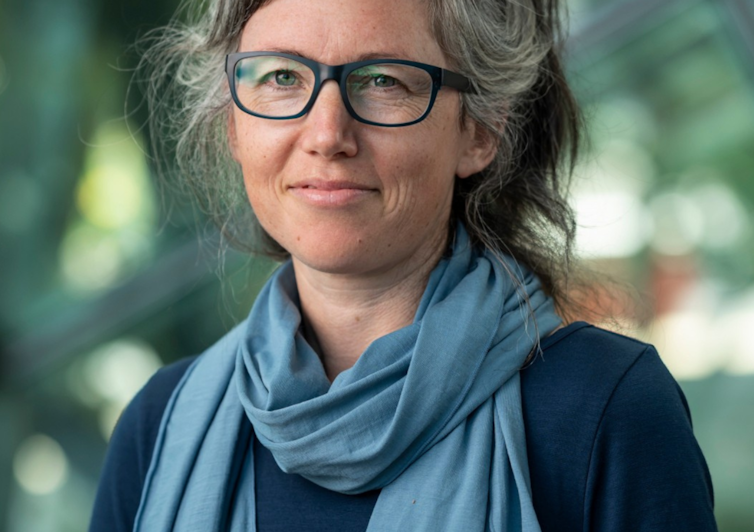A lost woman looks for purpose in a Guatemalan lakeside town, in Rachel Morton’s gripping novel
- Written by Shady Cosgrove, Associate Professor, Creative Writing, University of Wollongong

Rachel Morton’s The Sun was Electric Light is a novel about figuring, becoming, belonging and grieving. We follow 30-something narrator Ruth as she relocates to the Guatemalan lakeside town Panajachel, struggling with the question of how to live and what it might mean to live with purpose.
Ruth has left New York and arrives at Lake Atitlán a loner-searcher. Quickly, though – in spite of herself, perhaps – Ruth befriends fellow traveller Emilie. Emilie is solid and capable, a caring companion and lover. They fall into an easy routine, but Emilie soon leaves to work in Pátzcuaro and Ruth stays at the lake, befriending Carmen and Dwain.
Review: The Sun was Electric Light – Rachel Morton (UQP)
Carmen and Dwain, Americans who have never lived in the United States, are gregarious and beautiful. They have both grown up in Guatemala, born of hippie parents. And while Ruth’s new friends are mysterious, they are struggling with their own issues around purpose and identity.
They’ve grown up by the lake – their parents could afford to buy houses there – but they aren’t fully Guatemalan. Caught between places, cultures and possible lives, Carmen and Dwain echo Ruth’s unease. Even their partying and frivolity are undercut with a sense of sombre reckoning, as though they are moving towards something irrevocable and dangerous.
But Ruth is drawn to them: in part, because Carmen and Dwain understand the power of the lake. It is the lake that has pulled Ruth back to Guatemala, as though it could represent an earlier, less careworn version of herself.
The novel’s first paragraph tells us, “The first time I went was ten years ago, when I still thought life would bring me things.” This gets at one of the fundamental tensions of the novel: does life bring us things, or are we responsible for manifesting those things ourselves?
The lake as ‘a powerful teacher’
Ruth discovers the lake is not a site for nostalgic fantasy, and it is not an anthropocentric reflection of self. Instead, it is a powerful entity in its own right, which guides her in figuring out how she wants to live her limited time on the planet. As she says roughly midway through the novel: “Something was happening to me but I didn’t know what, and it didn’t seem to be coming from me.”
Morton does a stunning job of writing about landscape. The lake is not passive – it is not a resource to be photographed, consumed or exploited. It is not something to fear in the gothic tradition, either. Instead, it is a powerful teacher: the catalyst for Ruth’s journey.
When finances become an issue, Ruth moves out of her hotel and into a modest house on the outskirts of town; she works babysitting three boys. Then, as her relationship with the lake deepens and things fray with the boys’ mother, she moves across the water to the town of Jaibalito to live in a one-room hut with no electricity, and to teach English at a small school.
It is telling that her two jobs are in providing education and care: throughout the novel, Ruth is learning how to care for herself. Despite these changes, Ruth keeps in touch with Emilie – a friend who models a very different path than Carmen and Dwain. Through this contrast, and Ruth’s internal narration, Morton poignantly describes the intricacies and intimacies of friendship.
Distance, longing and sadness
Morton’s narration is pulled back: Ruth appears to filter her thoughts carefully before imparting them to the reader. This reserve is intriguing; it also highlights the novel’s often lyric observations.
For example, Dwain is “good in the way that people are good when they have suffered a lot without knowing it”. Ruth is distanced from the people and events she recounts, so the narrated world often feels out of reach.
Frequently, I found myself wondering what other characters thought of Ruth and how their points of view might differ from hers. Morton does a great job of using their reactions to leave space for interpretation, but this narratorial distance means the longing and sadness of the text can be confronting.



















